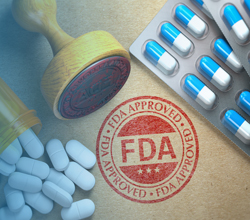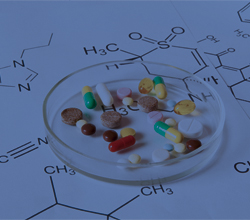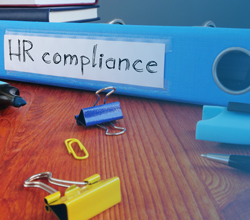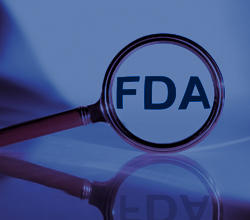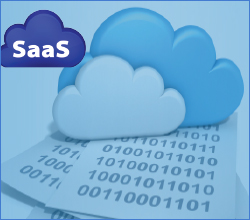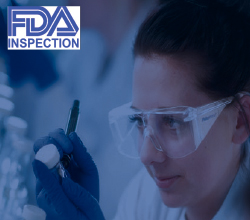
FDA Guidance for Use of Social Media by Regulated Industries
 Carolyn Troiano
Carolyn Troiano
 90 Mins
90 Mins
Product Id: 707033
This webinar training will help you understand in detail the application of FDA’s draft guidance documents on the use of social media in presenting and promoting information about drug products and medical devices subject to FDA regulation. This is critical in order to develop the appropriate strategy, policies, and procedures to ensure compliance.

Ensuring Data Integrity and Minimizing Human Error: Practical Strategies and Tools for Success
 Ginette M Collazo
Ginette M Collazo
 90 Mins
90 Mins
Product Id: 707034
Data integrity is a critical component of compliance and operational success in regulated industries such as pharmaceuticals and medical devices. Ensuring that data remains accurate, complete, and consistent throughout its lifecycle is essential for maintaining trust and meeting regulatory expectations. However, human error poses a significant threat to data integrity, with mistakes in data entry, processing, and analysis leading to costly breaches and compliance risks.

FDA Compliance for Regulated Systems Using COTS, Cloud & SaaS Solutions
 Carolyn Troiano
Carolyn Troiano
 90 Mins
90 Mins
Product Id: 707035
Advancements in technology have forced organizations to rethink business models. Once controlled and orderly, these organizations are now more chaotic and complex, serving patients and customers that are better informed and with higher expectations than ever before. Work practices and tools must change to meet these challenges.

Computer System Validation (CSV) vs. Computer System Assurance (CSA): Aligning the Agile Methodology to the GAMP®5 "V" Model and System Development Life Cycle (SDLC) Methodology
 Carolyn Troiano
Carolyn Troiano
 120 Mins
120 Mins
Product Id: 706921
As part of the Case for Quality program US FDA Center for Devices and Radiological Health noted how an excessive focus by industry on compliance rather than quality may be diverting resources and management attention toward meeting regulatory compliance requirements vs. adopting best quality practices. There has also been a lower than anticipated investment in automation and digital technologies, which could greatly improve quality and process control. A key element is a risk-based, product quality and patient-centric approach to Computer System Assurance (CSA) vs. the traditional Computer System Validation (CSV) waterfall approach. This encourages critical thinking based on product and process knowledge and quality risk management over prescriptive documentation driven approaches.
This is where FDA determined that “WHAT” is required can be done (the “HOW”) in different ways and does not have to be according to the “checklist” mindset of most CSV work, where you create documents without specifically addressing the risk of potential failure of each requirement.
GAMP®5 supports the use of incremental, iterative, and evolutionary approaches including agile, for development of custom applications. Keys to success include a robust Quality Management System and well trained and highly disciplined teams following well-defined processes supported by tools and automation.

How to write SOP's that Avoid Human Error
 Ginette M Collazo
Ginette M Collazo
 90 Mins
90 Mins
Product Id: 704418
This training program will address the common human errors and deviations related to the use of procedures. It will also offer best practices for writing SOP’s to reduce the likelihood of human errors.

FDA's New Software Validation Requirements
 John E Lincoln
John E Lincoln
 90 Mins
90 Mins
Product Id: 706952
CGMP companies must develop / implement formal software V&V for medical product under IEC 62304 and a key US FDA Guidance Document.

21 CFR Part 11, FDA’s Guidance for Electronic Records and Electronic Signatures
 Carolyn Troiano
Carolyn Troiano
 90 Mins
90 Mins
Product Id: 707014
The Webinar will focus on the importance of ensuring that electronic record/electronic signature (ER/ES) capability built into FDA-regulated computer systems meets compliance with 21 CFR Part 11. This includes development of a company philosophy and approach, and incorporating it into the overall computer system validation program and plans for individual systems that have this capability.

Ethylene Oxide and Gamma Radiation Sterilization Validations
 John E Lincoln
John E Lincoln
 90 Mins
90 Mins
Product Id: 707018
Gamma and EO Sterilization verification and validations under the U.S. FDA and EU's EMA / MDR requirements

US Market Access & Reimbursement : Medical Devices
 Robert J Russell
Robert J Russell
 60 Min
60 Min
Product Id: 706989
This targeted 60-minute U.S. Reimbursement training/webinar will help you understand and navigate the complex U.S. system for understanding product reimbursement status and potential for your Medical Device

Analytical Method Development, and Method Transfer
 John E Lincoln
John E Lincoln
 90 mins
90 mins
Product Id: 707009
The U.S. FDA and EU's MDR require specific steps to be fulfilled to develop and/or transfer analytical methods to maintain accuracy.

Designing an Effective Cleaning Validation for Reusable Medical Devices in Today's Regulatory Environment
 Gerry O Dell
Gerry O Dell
 90 Min
90 Min
Product Id: 701929
This training will review the best practices establishing and conducting a cleaning validation for reusable medical devices. It will also address the requirements of ANSI/AAMI ST 98.

Technical Writing for the Pharmaceutical, Medical Device and Biotech Industries
 Joy McElroy
Joy McElroy
 120 Min
120 Min
Product Id: 704531
This technical writing training program will offer attendees an understanding of how the reporting process supports products in research, development, and in the marketplace. This virtual session will highlight the mandates for documentation set forth by the regulators, such as the FDA, the ISO, and other governing bodies. The program will train attendees on effectively reviewing and revising documents and assessing your audience, in effect producing effective written correspondence.

Installation and Qualification of the Packaging Lines
 John E Lincoln
John E Lincoln
 90 Min
90 Min
Product Id: 706996
Both the U.S. FDA and EU's MDR expect documented risk-based IQ, OQ, an PQs of medical packaging lines under U.S. FDA cGMP, EU MRD, ICH Q7 and Q9 and ISO 14971

Preapproval Inspection and Submission to the FDA
 John E Lincoln
John E Lincoln
 90 Min
90 Min
Product Id: 706998
This webinar is intended to provide guidance regarding the FDA program to approve an NDA or an ANDA or PMA only if the methods used in, and the facilities and controls used for, the manufacture, processing, packing, and testing of the drug or Class III device are found adequate to ensure and preserve the drug's identity, strength, quality, and purity, or the device's safety and performance.

US FDA's Cybersecurity and NIST Framework Requirementsfor Networks
 John E Lincoln
John E Lincoln
 90 Min
90 Min
Product Id: 706971
Cybersecurity is the art of protecting networks, devices, and data from unauthorized access or criminal use. It is the practice of ensuring confidentiality, integrity, and availability of information, and is a rapidly growing problem for industry.

The eSTAR Submission Program for 510(k)s, IDEs, De Novos, PMAs, and Q-Submissions
 John E Lincoln
John E Lincoln
 90 Mins
90 Mins
Product Id: 706968
The regulation and control of new or substantially changed medical devices for sale in the US is based on the 510(k), PMA or DeNovo submission process; 510(k)s now can only be submitted to the FDA under the eSTAR (electronic Submission Template And Resource) Portal. Other submissions will be phased in using new guidance templates as they become available.

P&PC, SPC/6Sigma, Failure Investigation, Root Cause Analysis, PDCA, DMAIC, A3
 John E Lincoln
John E Lincoln
 90 Min
90 Min
Product Id: 706963
This webinar is intended to provide guidance regarding the CGMPs on manufacturing methods utilizing the US FDA Production and Process Controls for Drugs and Devices and Statistical Process Controls (SPC) as taught by Drs. Demming and others and required also in the CGMPs and under control of variation process guidance.

Design Control / Ddesign and Development Requirements / Documents Under 21 CFR 820/ ISO 13485 7.3
 John E Lincoln
John E Lincoln
 90 Mins
90 Mins
Product Id: 706923
Proper adherence and documentation of the FDA's Design Control requirements are key to any medical product project's success.

Deconstructing EU MDR with Principles of Lean Documents and Lean Configuration
 Jose Mora
Jose Mora
 120 Min
120 Min
Product Id: 706959
The EU MDR is a comprehensive and complex regulation that combines all aspects of placing certain types of medical devices on the EU market into one regulation. It addresses the obligations of economic operators in this role, and provides for extensive databases, clinical requirements, classifications, conformity, and many defined relationships between agencies, member states, and other directives and regulations.
This webinar deconstructs the many parts of this regulation into the elements of lean documents and lean configuration, providing an opportunity to apply these principles as a way to create and maintain flexibility as this and new harmonized standards and regulations emerge.

The New US FDA 21 CFR 820, Quality Management System Regulation (QMSR), Medical Device CGMPs
 John E Lincoln
John E Lincoln
 90 Mins
90 Mins
Product Id: 706961
The US FDA, after years of discussing the harmonization of 21 CFR 820, Device CGMPs (QSR), to the ISO 13485, Device QMS, has finally published their QMSR to replace the previous QSR. On February 02, 2024, they published the final rule in the US Federal Register that revises 21 CFR 820 to include ISO 13485:2016 by reference, called the Quality Management System Regulation (QMSR).

